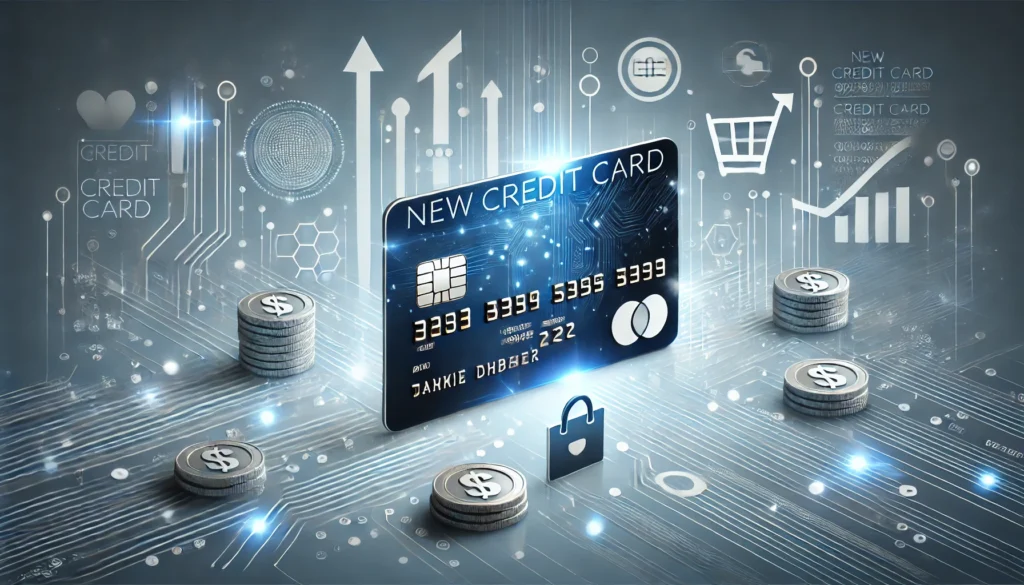As the year comes to a close, many people evaluate their financial situation, including whether it’s the right time to open a new credit card. While adding a credit card to your wallet can provide numerous benefits like rewards, cashback, and increased purchasing power, it’s important to consider a few key factors before making this decision.
Here’s a guide to help you determine if now is the right time to open a new credit card and what year-end considerations to keep in mind.
1. Evaluate Your Current Financial Situation
Before opening a new credit card, it’s essential to assess your current financial health. If you’re already carrying a significant amount of debt or struggling to make payments, taking on a new credit card may not be the best decision.
Key Questions to Ask Yourself:
- How much debt do I already have? If you’re currently carrying credit card balances with high-interest rates, focus on paying down existing debt before applying for another card.
- Am I able to pay off my balance in full each month? If you’re confident in your ability to pay off the balance on a new card each month, you can benefit from the rewards and perks without accumulating debt.
- Do I have a budget? Ensure that you have a solid budgeting plan in place. Opening a new credit card could make it tempting to overspend, so having a budget will help keep your spending in check.
If your financial situation is stable, and you’re disciplined about managing credit responsibly, opening a new card could provide valuable benefits.
2. Consider Year-End Promotions and Offers
The end of the year is a great time to take advantage of year-end promotions on credit cards. Many issuers offer limited-time bonuses, including extra rewards, higher cashback rates, or enticing sign-up bonuses to attract new customers during the holiday shopping season.
Benefits of Year-End Credit Card Offers:
- Sign-up bonuses: Many credit cards offer significant sign-up bonuses if you meet a minimum spending requirement within the first few months. For example, you may earn 50,000 points or $200 cashback after spending $3,000 in the first three months.
- Increased rewards on holiday spending: Some cards may offer extra rewards on categories like dining, travel, or shopping during the holiday season, allowing you to maximize points or cashback on holiday purchases.
- Introductory 0% APR offers: If you have large purchases planned, look for credit cards offering 0% APR on purchases or balance transfers for an introductory period. This can help you finance big-ticket items without paying interest for a set period.
However, it’s important to ensure that you’re not spending more just to meet a sign-up bonus or taking on unnecessary debt.
3. How Will It Affect Your Credit Score?
Opening a new credit card impacts your credit score, so it’s important to understand how applying for a card could affect your credit health, especially if you’re planning major financial moves like a mortgage or car loan in the near future.
How a New Credit Card Affects Your Credit Score:
- Hard inquiry: When you apply for a new credit card, the lender will perform a hard inquiry on your credit report, which can cause a small, temporary dip in your credit score. If you’re applying for multiple credit cards or loans, these hard inquiries can add up and lower your score further.
- Credit utilization ratio: A new credit card can help lower your credit utilization ratio, which is the percentage of your total available credit you’re using. A lower utilization ratio typically improves your credit score, especially if you maintain low balances across all credit cards.
- Credit age: A new credit card will lower your average credit age, which is a factor in calculating your credit score. If your average credit age is relatively young, opening a new card could have a minor impact on your score.
If you’re planning to apply for a loan or mortgage soon, it might be wise to hold off on opening a new credit card to avoid any negative impact on your credit score.
4. Align the Card with Your Financial Goals
Choosing the right credit card requires aligning it with your current financial goals. Depending on your goals, different types of credit cards will offer more value than others.
Types of Credit Cards:
- Rewards and cashback cards: If your goal is to earn rewards for your spending, consider cards that offer cashback, points, or miles for everyday purchases. Look for cards that match your spending habits, such as those that offer extra rewards on groceries, dining, or travel.
- Balance transfer cards: If you have existing credit card debt, a balance transfer card with a 0% introductory APR could help you pay down debt faster without accruing interest.
- Travel cards: If you’re planning more travel in 2025, a travel rewards card that offers miles or points toward flights, hotels, and other travel expenses may be a good fit.
- 0% APR cards: If you’re planning a large purchase and want to spread out payments, look for a card with a 0% introductory APR on purchases.
Ensure the card’s rewards and benefits align with your financial goals to get the most value.
5. Understand the Fees and Interest Rates
Before opening a new credit card, it’s essential to understand the fees and interest rates associated with the card. These can significantly impact the overall value you get from the card.
Key Fees and Rates to Consider:
- Annual fees: Some cards offer lucrative rewards but come with an annual fee. Make sure the rewards and benefits outweigh the cost of the annual fee. If you prefer a no-fee option, there are plenty of credit cards with no annual fee that still offer great perks.
- Interest rates (APR): Pay close attention to the card’s APR (Annual Percentage Rate), especially if you plan to carry a balance. If you don’t pay off your balance in full each month, high-interest rates can quickly add up and negate the value of any rewards you earn.
- Foreign transaction fees: If you plan to travel internationally, check whether the card charges foreign transaction fees, typically around 2-3% on purchases made abroad. Many travel rewards cards waive this fee.
Understanding the card’s fees and rates ensures that you’re making a financially sound decision that fits your needs.
6. How Will It Affect Your Holiday Spending?
Opening a new credit card at the end of the year can influence your holiday spending habits. While some cards offer great rewards for holiday shopping, it’s important to avoid overspending just because you have access to more credit.
Tips to Manage Holiday Spending with a New Credit Card:
- Stick to your budget: Create a holiday shopping budget and stick to it, regardless of how much credit is available on your new card. Use the card strategically to earn rewards, but avoid impulse spending.
- Pay off balances in full: To avoid paying interest, aim to pay off your balance in full when the statement arrives. This way, you can enjoy the benefits of the card without incurring debt.
- Monitor spending closely: If you open a new card, regularly check your spending to ensure you’re staying within your means. Many credit cards offer spending alerts or budgeting tools to help track expenses.
Keeping your holiday spending in check ensures that you’re using your new credit card responsibly.
7. End-of-Year Credit Card Reviews
If you already have one or more credit cards, the end of the year is a good time to review your current cards to ensure they still meet your needs. Assess their rewards programs, fees, and how much value you’re getting from them.
Review Considerations:
- Compare rewards: If you’re not earning as many rewards as you’d like from your current cards, it may be time to open a new one with a better rewards program.
- Check for unused benefits: Some credit cards offer perks like travel insurance, extended warranties, or purchase protection. Make sure you’re taking advantage of all the benefits your cards offer.
- Downgrade if necessary: If you’re paying an annual fee on a card but not using it enough to justify the cost, consider downgrading to a no-fee card within the same issuer.
Reviewing your credit cards at year-end ensures that you’re making the most of your current cards and allows you to decide if a new one is necessary.
Final Thoughts
Opening a new credit card at the end of the year can be a smart financial move, especially if you’re looking to take advantage of sign-up bonuses, holiday rewards, or balance transfer offers. However, it’s essential to consider your current financial situation, credit score, and spending habits before making a decision.
If you’re in a stable financial position and can manage a new card responsibly, now may be the perfect time to open one. Just be sure to choose a card that aligns with your goals, offers valuable rewards, and has reasonable fees. By doing so, you can set yourself up for financial success going into the new year.





 GOOGL
GOOGL  META
META
Leave a Comment